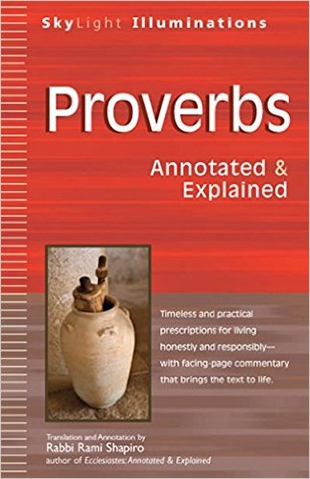"The Book of Proverbs addresses us as if we were all . . . in need of clarity and truth. No theories. No excuses. Just love and die. It is this ability of Proverbs to cut to the heart of the matter that gives the book its power. It doesn't deal in grays.
"For Solomon, there are two states of mind: disciplined and slothful. The disciplined mind focuses on the task at hand and engages life as best it can. The slothful mind looks for excuses for inaction or seeks to cut corners through violence, dishonesty, and theft.
"Solomon calls us 'ignorant,' 'lazy,' and 'foolish' when we complicate the simple and substitute the easy for the good. He calls us 'wise' when we cease to hide from reality and openly and honestly face the truth of each moment.
"Is Solomon wrong to approach life so simply? Are his proverbs any less useful for their being so stark? On the contrary, it is Solomon's honest portrayal of reality and his clear prescriptions for how to live it that give the book its power and timelessness.
"To benefit from reading Solomon's proverbs, you have to have the courage to see the world as he does: simply, and without the smoke and mirrors of our rationalizations and excuses. The Book of Proverbs forces us to examine our lives and how we are living them without the benefit of psychological sophistry and New Age babble. We are either disciplined or lazy. We are either doing good or doing bad. We are either curbing our desires or succumbing to them. We are either wise or foolish. We are either a student of wisdom or a puppet of desire.
"Facing this is a challenge. Your mind will find excuses to discount almost every teaching. You need to be patient with yourself, but not yielding. Solomon's teachings are simple, but not simplistic. If you allow them to speak to you honestly, if you do not defend yourself against their meaning and their implication for your life, and if you listen carefully to this ancient king's instructions, you will change for the better and grow in wisdom."
